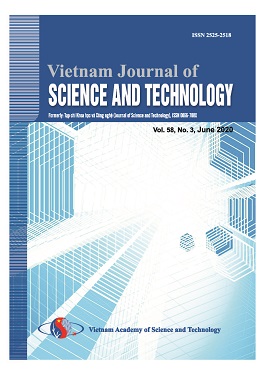A model-free controller for uncertain robot manipulators with matched disturbances
Author affiliations
DOI:
https://doi.org/10.15625/2525-2518/16840Keywords:
intelligent feedback linearization, iterative learning control, disturbance compensationAbstract
Precise control is critical for robots, but it is difficult to obtain an accurate dynamic model of the robot due to the presence of modeling errors and uncertainties in the complex working environment, resulting in decreased control performances. The article proposes a method for designing a digital controller for output tracking of disturbed repetitive robot manipulators that does not require a mathematical model of the controlled robots, with the goal of improving tracking accuracy. This controller consists of two separate intelligent parts. The first part aims to stabilize the original robot manipulators via a model-free state feedback linearization technique. The suggested model-free state feedback linearization technique does not make use of the original Euler-Lagrange model of the robot. The second part will then employ the concept of iterative learning control to asymptotically drive the obtained stable linear system to desired references. Both of these parts use only the robot’s measured data from the past for carrying out their tasks instead of robot models. Moreover, the proposed controller is structurally simple and computationally efficient. Finally, to validate the theoretical results, a simulation verification on a 2-degree-of-freedom (DOF) uncertain planar robot is performed, and the results show that excellent tracking performance is feasible.
Downloads
References
Frank L. Lewis, Darren M. Dawson, and Chaouki T. Abdallah - Robot manipulator control theory and practice. Marcel Dekker, Inc. 2004.
Craig J. J. – Introduction to Robotics, Mechanics and Control, 2a Edition, Addison-Wesley, 1989.
Sciavicco L., and Siciliano B. - Modeling and Control of Robot Manipulators, McGraw-Hill, 1996.
Abdelhamid Tayebi - Adaptive iterative learning control for robot manipulators 40 (7) (2004) 1195-1203.
Jean-Jacques Slotine, Weiping Li - Applied Nonlinear Control, Prentice-Hall, 1991.
Qu, Z. and Dawson, D. M. - Robust Tracking Control of Robot Manipulators, IEEE Press, 1996.
Feng Y., Zhou M., Yu X., and Han F. - Full order sliding mode control of rigid robotic manipulators, Asian Journal of Control. 21 (2019) 1228-1236.
Zhen S., Huang K., Sun H., Zhao H., and Chen Y. H. - Optimal robust control for rigid serial manipulators: A fuzzy approach, Asian Journal of Control 17 (2015) 2329-2344.
Long Jin, Shuai Li, Jiguo Yu, Jinbo He - Robot manipulator control using neural networks: A survey, Neurocomputing. 285 (2018) 23-34.
Wu Q. Yan and Cai J. - Neural network-based adaptive learning control for robot manipulators with arbitrary initial errors, IEEE Access. 7 (2019) 180194-180204.
Richard Lee, Liting Sun, Zining Wang, Masayoshi Tomizuka - Adaptive iterative learning control of robot manipulators for friction compensation, IFAC PapersOnLine. 52 (15) (2019) 75-180.
Farah Bouakrif - D-type iterative learning control without resetting condition for robot manipulators, Robotica. 29 (2011) 975-980.
Kevin L. Moore - Iterative learning control for deterministic systems, Springer, 1993.
Downloads
Published
How to Cite
Issue
Section
License

This work is licensed under a Creative Commons Attribution-ShareAlike 4.0 International License.
Vietnam Journal of Sciences and Technology (VJST) is an open access and peer-reviewed journal. All academic publications could be made free to read and downloaded for everyone. In addition, articles are published under term of the Creative Commons Attribution-ShareAlike 4.0 International (CC BY-SA) Licence which permits use, distribution and reproduction in any medium, provided the original work is properly cited & ShareAlike terms followed.
Copyright on any research article published in VJST is retained by the respective author(s), without restrictions. Authors grant VAST Journals System a license to publish the article and identify itself as the original publisher. Upon author(s) by giving permission to VJST either via VJST journal portal or other channel to publish their research work in VJST agrees to all the terms and conditions of https://creativecommons.org/licenses/by-sa/4.0/ License and terms & condition set by VJST.
Authors have the responsibility of to secure all necessary copyright permissions for the use of 3rd-party materials in their manuscript.



